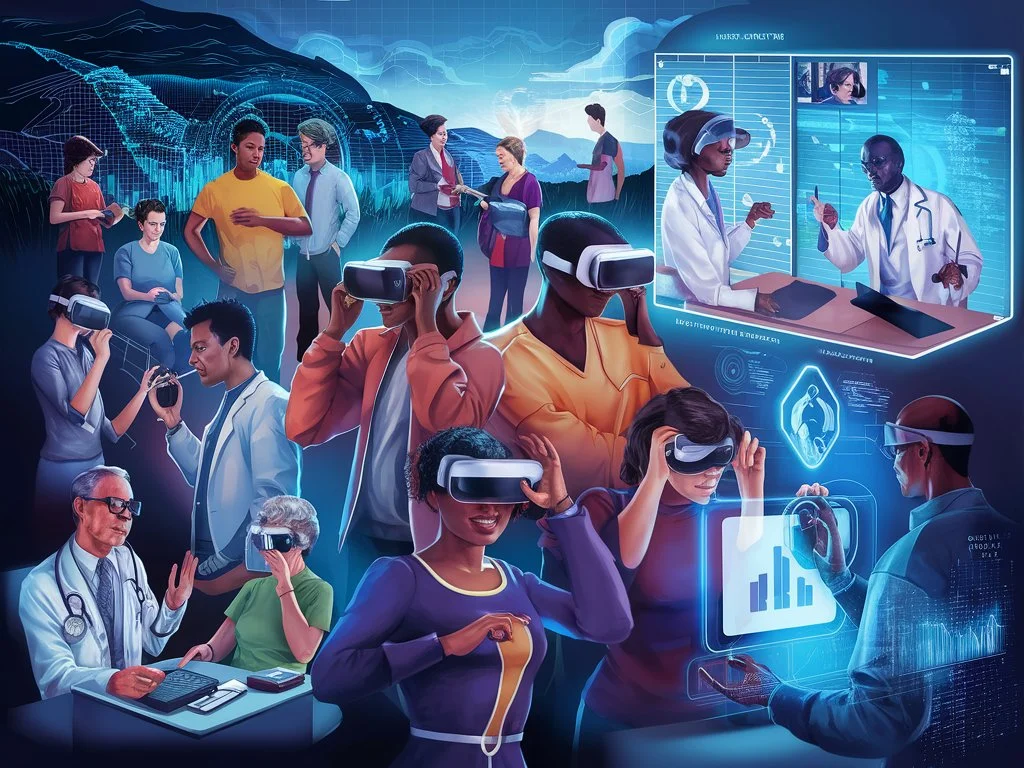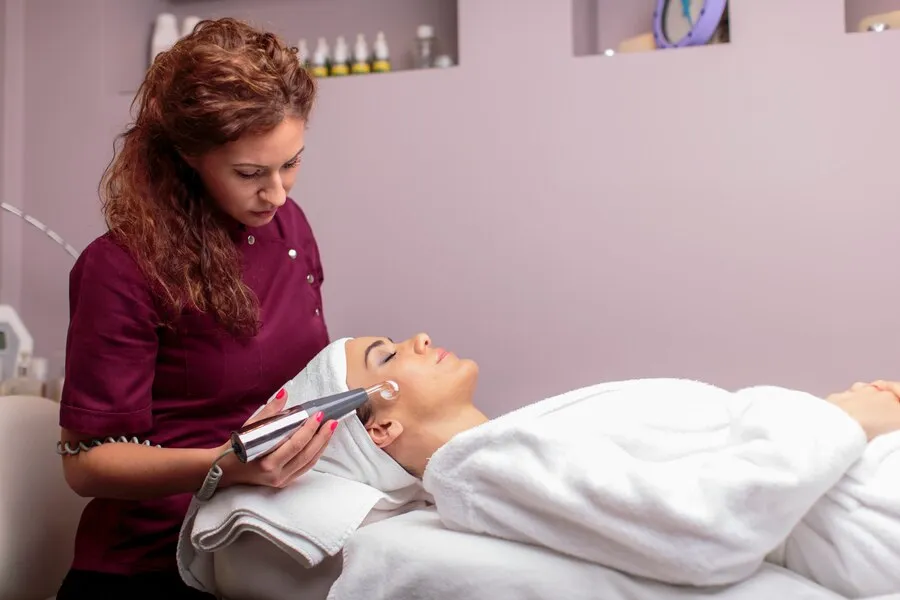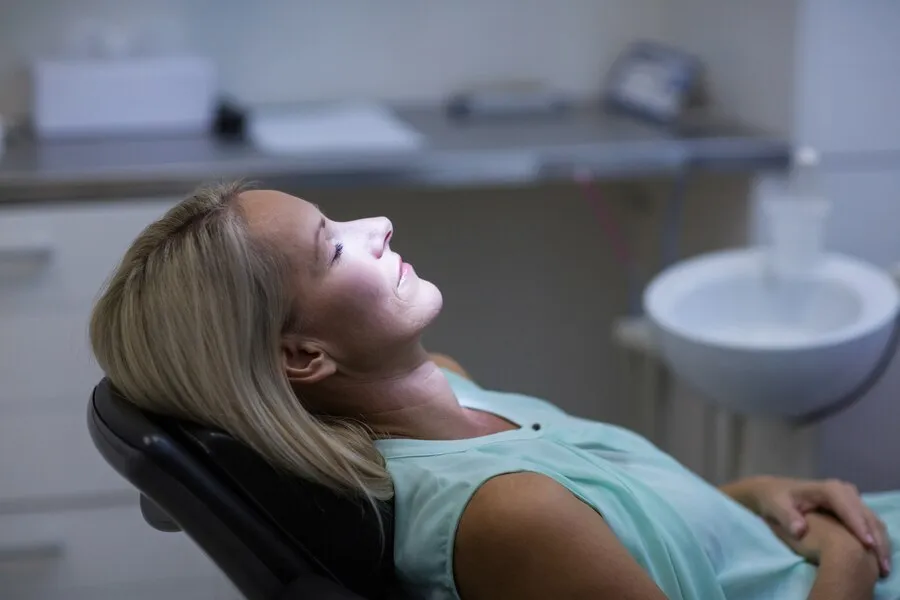Connected Health is changing how we think about Healthcare. This new approach combines technology with medical care to improve our lives. We will explore how connected Health transforms lives with revolutionary digital care solutions. From remote monitoring to telemedicine, connected Health offers many benefits that make our lives easier and healthier.
What is Connected Health?
Understanding Connected Health
Connected Health, or health care, represents a transformative approach to linking patients with healthcare providers. Utilizing technology, such as digital health platforms and connected health solutions, makes starting your journey towards better Health possible. This reduces the need for frequent visits to the doctor’s office.
Examples of connected Health include mobile apps that track fitness, personal emergency response systems, or remote patient monitoring (RPM) using telehealth tools. Ochsner Health provides connected health systems that empower patients, including soon-to-be moms, in pregnancy management. This approach, designed around healthcare management, helps guide individuals.
It helps monitor their Health through proactive health technology. This offers a comprehensive solution that enhances patients’ quality of life. Connected Health aims to provide personalized care that fits the patient, empowering better health outcomes.
How Connected Health Works

Connected Health gathers health data from digital health tools and uses it in real time. For example, patients can wear wireless devices or a fitness tracker that monitors daily steps, heart rate, glucose levels, and sleep patterns. This data is sent to healthcare professionals.
Healthcare professionals, like dedicated care teams or physicians, can monitor patient outcomes and provide therapy and interventions. Healthcare services can even be accessed from the living room, offering virtual visits and RPM to help health professionals. This approach allows for proactive and critical health needs.
Ochsner Connected Health has innovated healthcare delivery by providing personalized, optimal treatment plans for chronic conditions like high blood pressure or type 2 diabetes. Connected Health enables Healthcare wherever you go. It supports medication adherence, wellness, and a patient-centric experience.
The Benefits of Connected Health
Connected Health’s Health focuses on improving wellness through technology and a network of healthcare professionals. Tools like telehealth and mobile devices support healthcare delivery to enhance patient outcomes. Connected Health empowers patients by offering personalized healthcare solutions.
Healthcare services can be provided via mobile apps available in the Apple Store. These help patients establish a baseline through remote monitoring of health metrics. Patients can experience comprehensive healthcare services wherever they are, customized to fit their unique needs.
This approach is suitable for proactive health management, including cardiac monitoring and managing chronic conditions. Connected Health addresses patient needs professionally, whether it’s manait’s type 2 diabetes, glucose tracking, or providing front desk support for healthcare recommendations. It also supports non-invasive interventions.
Wellness interventions, remote monitoring, and RPMs that track progress make Healthcare more comprehensive. Connected Health emphHealth empowers and guides patients and optimizes their outcomes through health data. The umbrella of Connected Health delivers both acute and chronic healthcare services nationwide.
The Benefits of Connected Health
Improved Access to Care

One of the most significant benefits of connected Health is that it improves access to care. People in remote areas or with limited mobility can still receive quality healthcare. Telemedicine allows you to consult with doctors from the comfort of your home. This means fewer trips to the hospital and more timely medical advice.
Better Chronic Disease Management
Connected Health is healthier for managing chronic diseases like diabetes, heart disease, and asthma. Devices can monitor vital signs and send alerts if something is wrong. This means doctors can intervene quickly before a minor issue becomes a significant problem. It leads to better health outcomes and a higher quality of life.
Cost Savings
Connected Health can save money. By reducing the need for in-person visits and hospital stays, healthcare costs go down. Patients can manage their conditions at home with the help of digital tools, which are often cheaper than traditional methods. Insurance companies also see the value of connected Health, which leads to lower patient premiums.
Revolutionary Digital Care Solutions
Remote Monitoring Devices
Remote monitoring devices are a vital part of Connected Health. These devices can track everything from blood pressure to oxygen levels. They are easy to use and provide accurate data to your healthcare provider. With remote monitoring, doctors can monitor your Health without you having to leave home.
Telemedicine
Telemedicine is another revolutionary digital care solution. It allows you to have video calls with your doctor, saving time and travel. Telemedicine is perfect for routine check-ups, follow-up appointments, and mental health consultations. It is convenient and helps you stay connected with your healthcare team.
Health Apps and Wearables
Health apps and wearables are becoming more popular. These tools help you keep track of your fitness goals, medication schedules, and overall Health. ManHealth offers reminders to take your medication or exercise, making staying on top of your HHealthmore accessible. Wearables, like smartwatches, can monitor your heart rate, sleep patterns, and physical activity, giving you and your doctor valuable insights into your Health.
AlsHealth Health: Secret to Extraordinary Vitality and Wellness Today!
Challenges of Connected Health

Privacy and Security Concerns
While connected HHealthoffers health benefits, it also comes with challenges. Privacy and security are significant concerns. With so much personal health data being shared online, people must protect it. Healthcare providers must use secure platforms to prevent data breaches and keep patient information confidential.
Technology Access and Literacy
Not everyone has access to or knows how to use the latest technology, creating a gap in who can benefit from connected HHealth EduHealth. Support to help people understand and use these digital tools is essential. We should also ensure that technology is accessible to everyone, regardless of background or location.
The Future of Connected Health
Innovations on the Horizon
The future of connected HHealthis hHealth Innovations like artificial intelligence and machine learning make digital care even more effective. These technologies can quickly analyze large amounts of data, helping doctors make better decisions. We will see more advanced remote monitoring devices and health apps that provide personalized care.
A Healthier Tomorrow
ConnectedHealthcaree has the potential to create a healthier tomorrow. Technology can improve Healthcare, help manage chronic illnesses, and save money, ultimately enhancing the quality of life. As more people embrace connected Healthcare, we hope to shift towards a more proactive and efficient healthcare system.
Final Thoughts
Connected HHealthis transforming lives with revolutionary digital care solutions. From remote monitoring to telemedicine, this approach offers numerous benefits that make Healthcare more accessible, efficient, and personalized. Despite some challenges, the future of connected Healthealthealthy.




